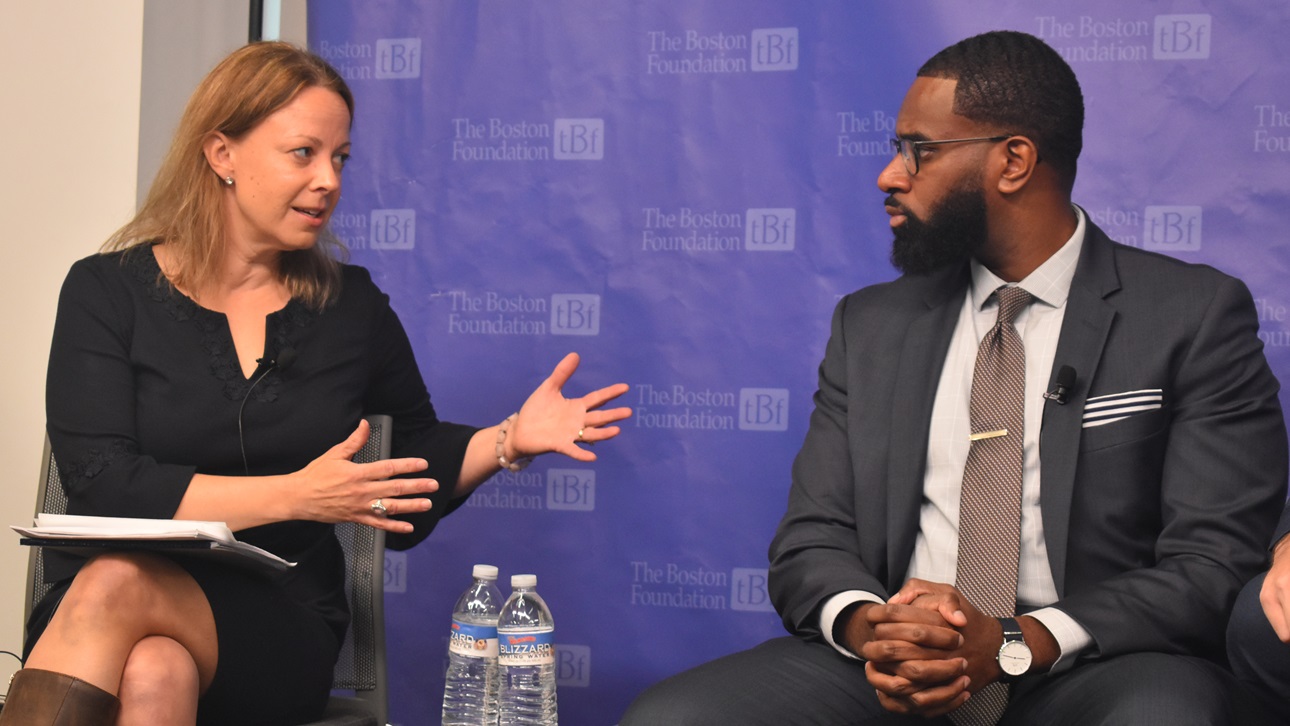The importance of Empowering Teachers and Principals
Wanted: Clarity and Trust
November 5, 2018
By Elizabeth Pauley, Associate Vice President, and Antoniya Marinova, Senior Program Officer, Education to Career
On October 23, together with the Lynch Foundation and Strategic Grant Partners, the Boston Foundation hosted In Their Own Words, a forum to release and discuss findings from a new survey of principals in Greater Boston’s district, charter and Catholic schools. Close to 150 principals responded to share what they need from their central office partners.
The headline? Principals want to be full partners with their central offices. They want to have more input into key decisions made about their schools. And they want more supports in critical areas, such as community and family engagement.
For example, almost three quarters of principals shared that they’d prefer a stronger form of partnership with the central office in providing services like professional learning, student supports, finance, and school safety. As one principal noted, “Not that I want to be fully responsible for transportation or food services or athletics, but it would be nice for central office to listen to schools or ask our opinions before making decisions.” Another reflected, “Every aspect of schools must have principal input.”
Findings
The survey’s findings—and key messages from the forum’s panel discussion with principals and district leaders—can be best summed up in two words: clarity and trust. These form the foundation of a successful school: clarity about what the central office can provide to schools, clarity around what the school is being held accountable for, and trust that school leaders are experts who know best what their schools need.
Breaking news, right? It isn’t really, but in our urgency to help create success for Boston’s young people, it’s easy to look past those who are closest to those students. When we do, we risk missing out on the expertise that comes from lived experience. The survey was a good reminder that if central office and schools are to be better partners, trust comes first.
Working on It
Strengthening that sense of partnership was front and center when the Boston Public Schools brought a cohort of six principals to the University of Virginia in the summer of 2018 to kick off a rigorous, multi-part professional development program aimed at re-imagining the relationship between central office and schools. Central to that was building trust: trust that the principals are the right people to identify strengths and weaknesses in their programming, and trust that central office will listen. Now well into the school year, the participating principals and central office leaders are collaborating to operationalize a new way of working together—one that shifts the role of central office toward supporting needs identified by principals.
But trust can’t stop there. The day after we released the principals survey, the Foundation hosted the third and final summit of the inaugural TeachPlus EDX Fellowship, a 10-month-long program for teacher leaders from Boston’s district, charter, and Catholic schools. The teacher fellows came together to identify levers for improving outcomes for young people, using teacher surveys, cross-sector school visits, and interviews. Together, they identified teacher leadership, school autonomy, social and emotional learning, and family engagement as the most important areas of focus.
While each of these focus areas offers distinct opportunities, they all rely on a foundation of trust. Principals and school communities need to trust that teachers are committed to their students, and that they are experts in instruction. This aligns with a message we heard from principals at last week’s forum: If we are to improve student learning, autonomy for and trust in school leaders is necessary but not enough; principals in turn need to empower and trust teachers in their schools to lead. When we value the expertise teachers bring, we create space for them to share and develop the most effective ways to help young people grow into healthy, productive, and happy adults.
Listening to educators and valuing their expertise is why we started the Boston EdTalks eight years ago. We’ll honor them again during Teacher Appreciation Week in May 2019, when we host another evening of celebrating teacher-led innovation. Through all these means, we hope to facilitate that refinement of clarity and trust articulated by the surveyed principals.

